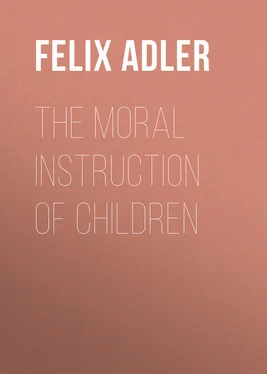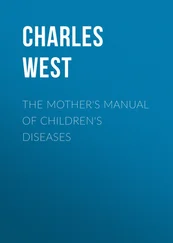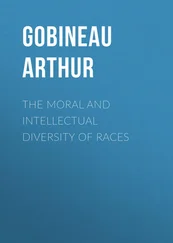Felix Adler - The Moral Instruction of Children
Здесь есть возможность читать онлайн «Felix Adler - The Moral Instruction of Children» — ознакомительный отрывок электронной книги совершенно бесплатно, а после прочтения отрывка купить полную версию. В некоторых случаях можно слушать аудио, скачать через торрент в формате fb2 и присутствует краткое содержание. Жанр: foreign_language, foreign_antique, foreign_prose, на английском языке. Описание произведения, (предисловие) а так же отзывы посетителей доступны на портале библиотеки ЛибКат.
- Название:The Moral Instruction of Children
- Автор:
- Жанр:
- Год:неизвестен
- ISBN:нет данных
- Рейтинг книги:3 / 5. Голосов: 1
-
Избранное:Добавить в избранное
- Отзывы:
-
Ваша оценка:
- 60
- 1
- 2
- 3
- 4
- 5
The Moral Instruction of Children: краткое содержание, описание и аннотация
Предлагаем к чтению аннотацию, описание, краткое содержание или предисловие (зависит от того, что написал сам автор книги «The Moral Instruction of Children»). Если вы не нашли необходимую информацию о книге — напишите в комментариях, мы постараемся отыскать её.
The Moral Instruction of Children — читать онлайн ознакомительный отрывок
Ниже представлен текст книги, разбитый по страницам. Система сохранения места последней прочитанной страницы, позволяет с удобством читать онлайн бесплатно книгу «The Moral Instruction of Children», без необходимости каждый раз заново искать на чём Вы остановились. Поставьте закладку, и сможете в любой момент перейти на страницу, на которой закончили чтение.
Интервал:
Закладка:
My first point therefore is, that the moral teaching at a given period should be made to fit the special duties of that period. Secondly – and this touches the core of the matter – in every period of life there is some one predominant duty around which all the others may be grouped, to which as a center they may be referred. Thus, the paramount duty of the young child is to reverence and obey its parents. The relation of dependence in which it stands naturally prescribes this duty, and all its other duties can be deduced from and fortified by this one. The correctness of its personal habits and of its behavior toward others depends primarily on its obedience to the parental commands. The child resists the temptation to do what is wrong, chiefly because it respects the authority and desires to win the approbation of father and mother. Secondary motives are not wanting, but reverence for parents is the principal one.
Thirdly, in each new period there emerges a new paramount ethical interest, a new center of duties. But with the new system of duties thus created the previous ethical systems are to be brought into line, into harmonious correlation. And this will be all the more feasible, because the faithful performance of the duties of any one period is the best preparation for the true understanding and fulfillment of those of the next. From these statements the following conclusions may be drawn with respect to the question under discussion – namely, the proper sequence of the topics of duty in a course of moral lessons.
The moral lessons being given in school, must cover the duties which are peculiar to the school age. The paramount duty should be placed in the foreground. Now the paramount duty of children between six and fourteen years of age is to acquire knowledge. Hence we begin the lessons with the subject of intellectual duty. In the next place, the duties learned in the previous periods are to be brought into line with the duties of the school age. At each new step on the road of ethical progress the moral ideas already acquired are to be reviewed, confirmed, and to receive a higher interpretation.
We have already seen that, before the child enters school, its personal duties are such as relate to the physical life and the feelings, and its chief social duties are the filial and fraternal.
Therefore, the order of topics for the lessons thus far stands: The duty of acquiring knowledge; the duties which relate to the physical life; the duties which relate to the feelings; the filial duties; the fraternal duties.
Again, a child that has learned to respect the rights of its brothers and sisters, and to be lovingly helpful to them, will in school take the right attitude toward its companions. The fraternal duties are typical of the duties which we owe to all our companions, and, indeed, to all human beings.
The next topic of the lessons, therefore, will be the duties which we owe to all human beings.
Finally, life in school prepares for life in society and in the state, and so this course of elementary moral lesson will properly close with "The elements of civic duty."
V.
THE MORAL OUTFIT OF CHILDREN ON ENTERING SCHOOL
It is difficult to trace the beginnings of the moral life in children. The traveler who attempts to follow some great river to its source generally finds himself confused by the number of ponds and springs which are pointed out to him with the assurance in the case of each that this and no other is the real source. In truth, the river is fed not from one source but from many, and does not attain its unity and individuality until it has flowed for some distance on its way. In like manner, the moral life is fed by many springs, and does not assume its distinctive character until after several years of human existence have elapsed. The study of the development of conscience in early childhood is a study of origins, and these are always obscure. But, besides, the attention hitherto given to this subject has been entirely inadequate, and even the attempts to observe in a systematic way the moral manifestations of childhood have been few.
Parents and teachers should endeavor to answer such questions as these: When do the first stirrings of the moral sense appear in the child? How do they manifest themselves? What are the emotional and the intellectual equipments of the child at different periods, and how do these correspond with its moral outfit? At what time does conscience enter on the scene? To what acts or omissions does the child apply the terms right and wrong? If observations of this kind were made with care and duly recorded, the science of education would have at its disposal a considerable quantity of material from which no doubt valuable generalizations might be deduced. Every mother especially should keep a diary in which to note the successive phases of her child's physical, mental, and moral growth; with particular attention to the moral; so that parents may be enabled to make a timely forecast of their childrens' characters, to foster in them every germ of good, and by prompt precautions to suppress, or at least restrain, what is bad.
I propose in the present lecture to cast a glance at the moral training which the normal child receives before it enters school, and the moral outfit which it may be expected to bring with it at the time of entering. Fortunately, it is not necessary to go very deeply into the study of development of conscience for this purpose. A few main points will suffice for our guidance.
First Point. – The moral training of a child can be begun in its cradle. Regularity is favorable to morality. Regularity acts as a check on impulse. A child should receive its nourishment at stated intervals; it should become accustomed to sleep at certain hours, etc. If it protests, as it often does vigorously enough, its protests should be disregarded. After a while its cries will cease, it will learn to submit to the rule imposed, and the taking of pleasure in regularity and the sense of discomfort when the usual order is interrupted become thenceforth a part of its mental life. I do not maintain that regularity itself is moral, but that it is favorable to morality because it curbs inclination. I do not say that rules are always good, but that the life of impulse is always bad. Even when we do the good in an impulsive way we are encouraging in ourselves a vicious habit. Good conduct consists in regulating our life according to good principles; and a willingness to abide by rules is the first, the indispensable condition of moral growth. Now, the habit of yielding to rules may be implanted in a child even in the cradle.
Second Point. – A very young child – one not older than a year and a half – can be taught to obey, to yield to the parent's will. A child a year and a half old is capable of adhering to its own will in defiance of the expressed will of father or mother. In this case it should be constrained to yield. We shall never succeed in making of it a moral person if it does not realize betimes that there exists a higher law than the law of its will. And of this higher law, throughout childhood, the parent is, as it were, the embodiment. When I say that obedience can be exacted of a child of such tender age, that a child so young is capable of deliberately opposing the will of the parent, I speak from experience. I know a certain little lady who undertook a struggle with her father precisely in the way described. The struggle lasted fully thirty-five minutes by the clock. But when it was over, the child stretched out her little arms and put up her lips to be kissed, and for days after fairly clung to her father, showing him her attachment in the most demonstrative manner. Nor should this increase of affectionateness excite surprise – it is the proper result of a conflict of this sort between father and child when conducted in the right spirit. The child is happy to be freed from the sway of its wayward caprice, to feel that its feeble will has been taken up into a will larger and stronger than its own.
Читать дальшеИнтервал:
Закладка:
Похожие книги на «The Moral Instruction of Children»
Представляем Вашему вниманию похожие книги на «The Moral Instruction of Children» списком для выбора. Мы отобрали схожую по названию и смыслу литературу в надежде предоставить читателям больше вариантов отыскать новые, интересные, ещё непрочитанные произведения.
Обсуждение, отзывы о книге «The Moral Instruction of Children» и просто собственные мнения читателей. Оставьте ваши комментарии, напишите, что Вы думаете о произведении, его смысле или главных героях. Укажите что конкретно понравилось, а что нет, и почему Вы так считаете.












